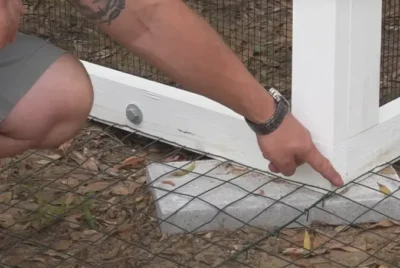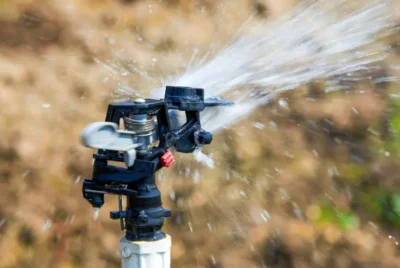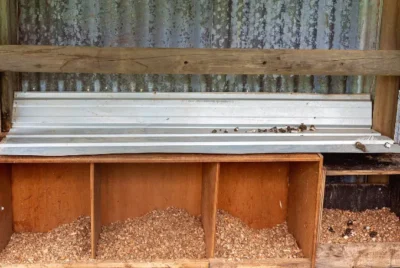How to Keep Flies Away from Chicken Coop: Tips and Tricks
Are you frustrated with the never-ending fly problem in your chicken coop? Flies not only make things dirty and uncomfortable for your chickens but can also spread diseases that affect both your birds and your family.
Dealing with flies can be a real hassle, but don’t worry, in this article, we’ll explain simple and effective ways to keep flies away from your chicken coop.
Why You Need to Remove Flies in the Chicken Coop
Removing flies from the chicken coop is crucial for several reasons, all of which center around the chickens’ health and well-being and the environment’s cleanliness. Here are the key reasons why it’s important to remove flies from a chicken coop:
- Prevention of Disease Transmission: Flies are vectors for various pathogens, including bacteria like Salmonella and Campylobacter. These pathogens can cause severe illnesses in chickens and can also be transmitted to humans handling the chickens or their eggs.
- Reducing the Risk of Botulism: The presence of flies increases the risk of botulism, a potentially fatal illness caused by toxins produced by the bacteria Clostridium botulinum. Flies can spread this bacteria by contaminating chicken feed or water with their larvae (maggots), which, if ingested by chickens, can lead to severe health issues.
- Avoiding Flystrike: Flystrike, a painful and often deadly condition, occurs when flies lay eggs on chickens, particularly in wounds or soiled areas. The hatched larvae can eat the chicken’s flesh, leading to severe infections and possibly death if not treated promptly.
- Maintaining a Hygienic Environment: Flies can quickly multiply and create unhygienic conditions. They are attracted to and breed in feces, rotting food, and other organic waste, which can be abundant in a poorly maintained coop.
- Ensuring Chicken Well-being: A fly-infested environment can be stressful and harmful to chickens. Flies can irritate and disturb chickens, affecting their comfort, behavior, and potentially even their egg production.
- Overall Farm Management: Effective fly control is critical to managing a healthy and productive farm or homestead. Keeping fly populations in check is part of responsible animal husbandry.
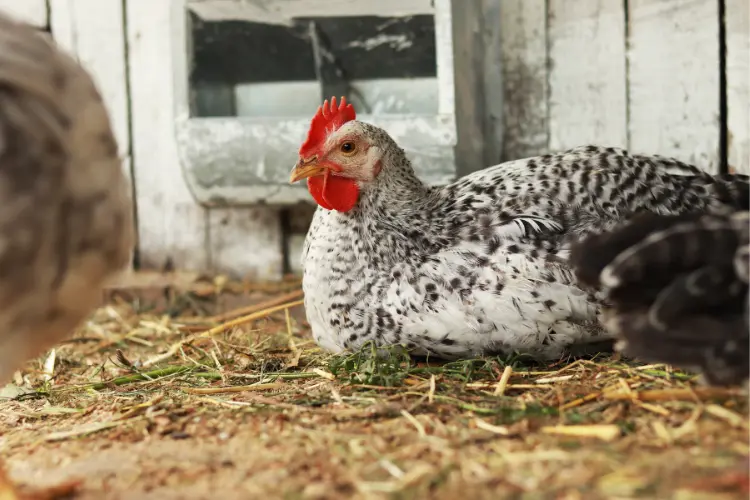
Why Do Flies Come to the Chicken Coop?
- Chicken Droppings: Chicken manure is a prime attraction for flies. It’s a food source for them and an ideal breeding ground. The moisture and organic material in the droppings provide a perfect environment for flies to lay their eggs.
- Food Scraps and Wet Feed: Leftover food scraps and wet feed in the coop can attract flies. These provide an easy and nutritious food source for flies and their larvae.
- Moist and Damp Conditions: Flies thrive in moist environments. Dampness in the coop, whether from spilled water, humidity, or wet bedding, can attract flies. This moisture is essential for the development of their larvae.
- Decaying Organic Matter: Any form of decaying organic matter, such as rotting feed, bedding material, or even dead insects or rodents, can attract flies. They are drawn to these materials for both feeding and breeding.
- Warmth: Coops can provide a warm and protected environment, which is particularly attractive to flies in cooler weather. The heat generated by chickens can also create an inviting environment for flies.
- Lack of Sanitation: Poorly maintained coops with accumulated waste, lack of proper ventilation, and uncleaned feeding and watering areas are more prone to fly infestations. Good sanitation practices are essential in keeping fly populations under control.
Effective Ways to Keep Flies Away from Chicken Coop
Maintain a Clean Chicken Coop
Maintaining a clean coop is a fundamental step in eliminating flies from your chicken coop. Flies are naturally attracted to areas with waste and decaying matter. To combat this, it’s essential to regularly remove old litter, leftover feed, kitchen scraps, and chicken droppings from the coop
Also, don’t forget to pay attention to the nesting boxes. Nesting boxes are where your hens lay their eggs, and they can become a prime location for flies to gather, especially if they contain old bedding or eggs that have been left behind.
Moreover, this not only eliminates potential breeding grounds for flies but also helps create a more hygienic living environment for your chickens.
In addition to removing visible waste, I advise thoroughly cleaning the coop’s surfaces using appropriate cleaning agents to ensure any lingering odors or residues that might attract flies are eradicated.
Read also: Truth or Myth: Will Chickens Stop Laying if Coop is Dirty?
Proper Litter Choice
Choosing the right litter for your coop is crucial in fly control. I often recommend sand for this purpose because sand can effectively cover chicken droppings, aiding in drying them out and reducing both odors and moisture levels. Flies are less likely to infest dry environments, making sand an effective deterrent.
Alternatively, you can also use hemp as an alternative coop litter. Hemp not only provides a comfortable surface for chickens but also deters bugs, contributing to a cleaner and less fly-attractive coop environment.
Moreover, the deep litter method is another option to keep flies away from your chicken coop. This method involves layering organic materials, such as straw, hay, or wood shavings, on the coop floor.
As the chickens scratch and peck at the litter, it forms a natural composting process. The beneficial microbes in the litter help break down chicken droppings, converting them into organic matter and reducing odors.
The deep litter method creates a dry and aerobic environment, which is less appealing to flies. It also provides insulation and warmth during colder months, making it a versatile choice for coop bedding
It’s important also to be mindful of the potential for other pests in this environment. As Raul from Kellogg Garden Products of kellogggarden.com points out Fungus gnats are also common in soils and potting mixes. It is the damp organic material that they are attracted to. If this occurs, Raul advises to reduce watering and letting the top layer dry out. If this continues, then supplementing it with diatomaceous earth can help.
Use Natural Fly Deterrents
Employing natural fly deterrents is another effective strategy for keeping flies at bay in the chicken coop. Flies have an aversion to the strong scents of certain herbs. You can introduce fresh herbs like basil, chamomile, lavender, lemongrass, oregano, mint, rosemary, and thyme into the coop to discourage flies.
You can hang these herbs inside the coop or sprinkle them onto the bedding. Not only do they act as a natural repellent for flies, but they also offer health benefits to your chickens. Also, they contribute to a more pleasant and fly-free environment while promoting the well-being of your flock.
You Can Also Use Fly Traps
I suggest employing fly ribbons and eco-friendly fly traps to control fly populations in the chicken coop. These traps attract and capture flies, reducing their numbers within the coop.
However, it’s essential to position these traps strategically to ensure they are out of reach of the chickens. While these traps are effective at catching flies, they should not be accessible to the chickens, as they might try to consume the trapped and dead flies and potentially get stuck themselves. Moreover, a fly trap offers a non-invasive, chemical-free method to manage fly populations.
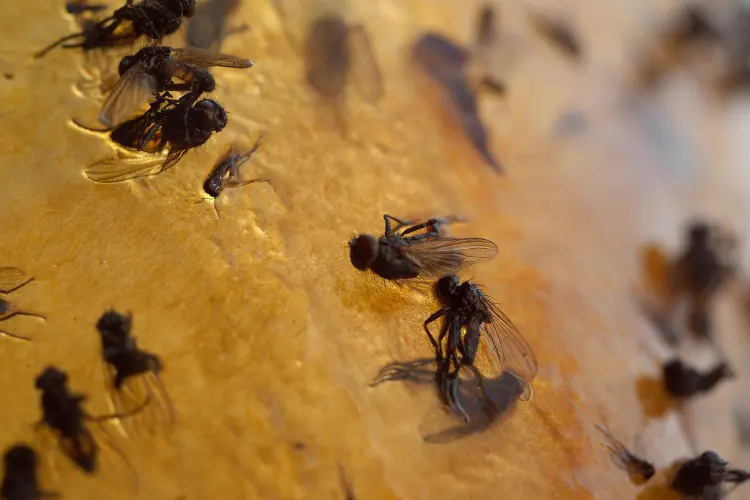
You Must Ensure Good Ventilation
Maintaining proper ventilation in the chicken coop is vital for discouraging flies. Flies are less likely to infest well-ventilated spaces, as fresh air can help keep the coop dry and reduce moisture levels, which are attractive to flies.
One effective method is to ensure that the coop has sufficient windows and vents to allow for cross-ventilation. This cross breeze can help keep the air inside the coop fresh and prevent the buildup of humidity and odors that can attract flies. Proper ventilation contributes significantly to a less hospitable environment for flies.
Manage Your Food Scraps
Managing food scraps is crucial in fly control. Flies are highly attracted to both chicken feed and food scraps, especially when they become wet or spoiled. To prevent flies from being drawn to the coop, promptly remove or cover any leftover feed and food scraps after the chickens have finished eating.
This not only helps in keeping flies away but also discourages other pests like rodents. By managing food scraps effectively, you can reduce the availability of food sources that attract flies, contributing to a cleaner and more fly-free coop environment.

Control Chicken Poop Buildup
To prevent flies from infesting the chicken coop, it’s crucial to control chickens poop buildup. Regular cleaning of both the coop and the run area is essential to avoid the accumulation of chicken manure. Flies are highly attracted to feces, which serve as breeding grounds.
By consistently removing and properly disposing of manure, you eliminate one of the primary attractants for flies, creating a cleaner and less hospitable environment.
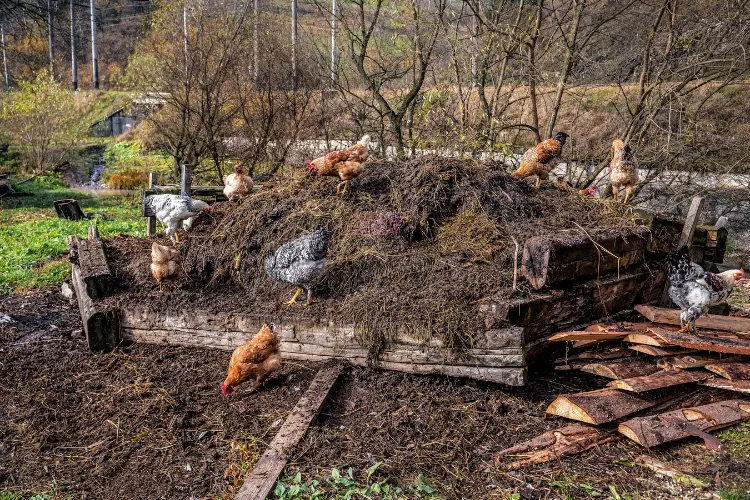
Consider Adding Ducks
An effective and natural way to control flies and other pests in your backyard, including the chicken coop area, is to consider adding ducks to your flock because they eat flies. Ducks of various breeds have a voracious appetite for insects and bugs. They love digging in the dirt, slurping in puddles, and searching for bug larvae.
By introducing ducks to your backyard, you create a natural pest control team that can help keep the fly and pest population in check.
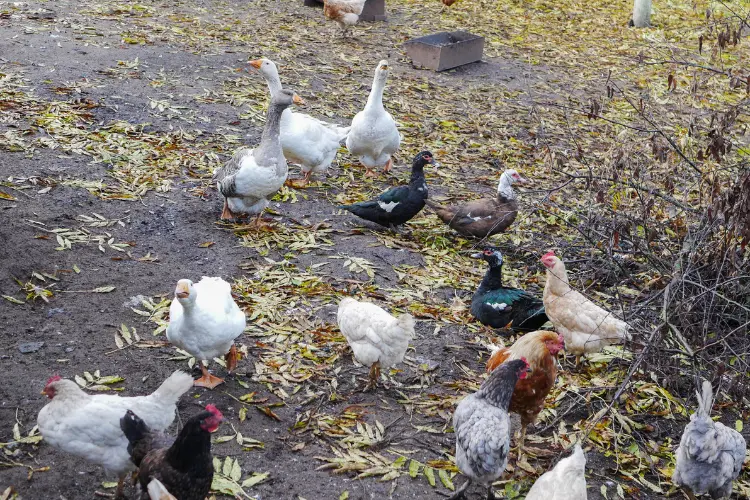
Use Diatomaceous Earth (DE)
Diatomaceous Earth (DE) is a valuable tool in fly control. DE is a fine, powder-like substance and you sprinkle it around the coop and in dust bath areas. It works mechanically rather than chemically, as it dehydrates insects and larvae, making the environment less hospitable for them.
While DE can effectively reduce fly populations, it should be part of a broader fly-prevention strategy rather than the sole solution.
DIY Fly Repellent
Creating a DIY fly repellent is another approach to repel flies from the chicken coop. You can prepare a natural fly repellent by mixing ingredients like vinegar, water, vanilla extract, and a combination of essential oils with strong scents that flies dislike. These essential oils can include rosemary, basil, dill, peppermint, spearmint, lavender, thyme, geranium, lemongrass, citronella, lemon, or orange.
By spraying this mixture in the coop wherever flies tend to congregate, you create a repellent barrier that discourages their presence. This natural fly repellent offers an additional layer of protection in your fly-prevention efforts.
Use Fly Predators
Another effective strategy for fly control around your chicken coop is using fly predators. Fly predators are tiny, non-stinging insects that prey on fly pupae, effectively reducing the fly population in your coop area. These beneficial insects are a natural and environmentally friendly way to keep flies in check.
Fly predators parasitise fly larvae, preventing them from developing into adult flies. To use fly predators, you simply release them in your coop area regularly, typically every few weeks during the fly season. They seek out and destroy fly pupae, breaking the fly’s life cycle and reducing their numbers.
It’s important to note that chickens are instinctive to forage and will happily snack on the fly predators you release. To make the most of this situation, you can strategically release fly predators where your chickens frequently forage but away from their primary feeding and resting areas.
By incorporating fly predators into your fly control strategy, you can significantly decrease the fly population around your chicken coop without using harmful chemicals or traps.
Conclusion
Maintaining a fly-free chicken coop is not only essential for the well-being of your chickens but also for the overall cleanliness and hygiene of your poultry operation. By implementing the comprehensive strategies we’ve discussed, you can significantly reduce and even completely eliminate flies from your chicken coop.
Remember that a combination of these methods tailored to your specific situation is often the most effective approach. With diligence and a commitment to keeping your coop clean and fly-free, you can create a healthier and more comfortable environment for your chickens while ensuring the success of your poultry endeavors.


